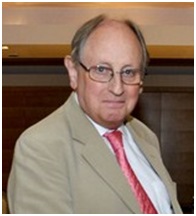- 08 Jul 2013
DAY 1 – IRAQ TEN YEARS AFTER: A RECKONING AND A BALANCE SHEET
Abstract:
This international two-day conference was an attempt to analyse the course of events in Iraq since the beginning of the US invasion in 2003. Participants have been asked to make a candid assessment of the history of the last ten years, and some have attempted to indicate likely developments in the short and medium term.
Three specialists have been invited from abroad; Toby Dodge of the London School of Economics has written first about the British mandate and subsequently about the post-2003 period. He has made several visits to Iraq, and has acted as an advisor, with ready access to some of the most senior Iraqi and non-Iraqi actors. Benjamin Isakhan, of Deakin University in Melbourne has recently published a book on democracy in Iraq in historical context. Charles Tripp, of the School of Oriental and African Studies in London has written what has become the standard history of modern Iraq, now in its 3rd edition.
Three members of the Middle East Institute here in Singapore have spent much of their lives working on Iraq, two as academics and one as a practitioner and an academic. Ali ‘Allawi, long in exile under the Ba‘th regime, was invited to be successively Minister of Trade, Minister of defence, and Minister of Finance, between 2003 and 2006, when he retired from politics. He has also written The Occupation of Iraq: Winning the War, Losing the Peace (Yale University Press, 2007); another book on Iraq, a biography of King Faysal I, is to be published towards the end of this year. Fanar Haddad is the author of Sectarianism In Iraq: Antagonistic Visions of Unity (Hurst, 2011, and is currently working on history and memory in the context of the events of the intifada in southern Iraq in 1991. Peter Sluglett has written, edited and co-authored several books on the modern history of Iraq. As the organisation of this workshop shows, his frequent attempts to escape further involvement in Iraqi historiography have not always been crowned with success.
On a more personal academic-genealogical level, Charles Tripp was Toby Dodge’s PhD supervisor; Peter Sluglett was Toby Dodge’s External PhD examiner, and Toby Dodge was Fanar Haddad’s External PhD examiner.
About the Speakers

TITLE : TO THE ABYSS AND BACK? IRAQ SINCE 2003
Peter Sluglett
Visiting Research Professor
Middle East Institute, National University of Singapore
Peter Sluglett has been Professor of Middle Eastern History at the University of Utah, Salt Lake City since 1994. He has published widely on Iraq, including Iraq since 1958: from Revolution to Dictatorship, 3rd edn., (2001, with Marion Farouk-Sluglett), and Britain in Iraq: Contriving King and Country (2007). He has also edited and contributed to Syria and Bilad al-Sham under Ottoman Rule: Essays in Honour of Abdul-Karim Rafeq, (2010, with Stefan Weber), and The Urban Social History of the Middle East 1750-1950 (2008). His research at MEI will focus on mapping the decline in political power of the Christians of Lebanon since the Ta’if Accords. Born and educated in England, where he taught at the University of Durham between 1974 and 1993, he has a BA from Cambridge (1966) and a D.Phil from Oxford (1972).

TITLE: OILWORKERS’ UNIONS AND THE STATE IN THE NEW IRAQ
Benjamin Isakhan Covenor
Australian Middle East Research Forum
Deakin University
Dr Benjamin Isakhan is Australian Research Council Discovery Early Career Research Award (DECRA) Senior Research Fellow at the Centre for Citizenship and Globalization and the Convenor of the Australian Middle East Research Forum, Deakin University. Previously, Ben has been Research Fellow with the Centre for Dialogue at La Trobe University and Research Fellow and Lecturer for the Griffith Islamic Research Unit, part of the National Centre of Excellence for Islamic Studies, Australia. Ben has also been Visiting Research Fellow at the Centre for Middle Eastern Studies and the Oriental Institute at the University of Chicago (US) and at the International Centre for Cultural and Heritage Studies at Newcastle University (UK).

TITLE: VIOLENCE AS A MEANS OF COMMUNICATION IN IRAQ: INTENDED AND UNINTENDED CONSEQUENCES
Charles Tripp Head of Department
School of Oriental & African Studies (SOAS), United Kingdom
Professor Charles R. H. Tripp is a professor of politics, lecturing on government and politics of the Middle East for both undergraduates and postgraduates at the School of Oriental and African Studies (SOAS). Tripp’s main areas of research include the study of state and society in the Middle East, especially Iraq, and Islamic political thought.
Professor Tripp is a world class specialist on Iraq and has contributed as regional expert to media broadcasters including the BBC and NPR, as well as to print media such as Foreign Affairs, The Guardian and the New Statesman. In the run up to the war against Iraq, Professor Tripp was part of a small team that visited 10 Downing Street in order to advise the prime minister, Tony Blair, on the consequences of going to war
Event Details
Lee Kong Chian School of Business
Singapore Management University
50 Stamford Road Singapore 178899




